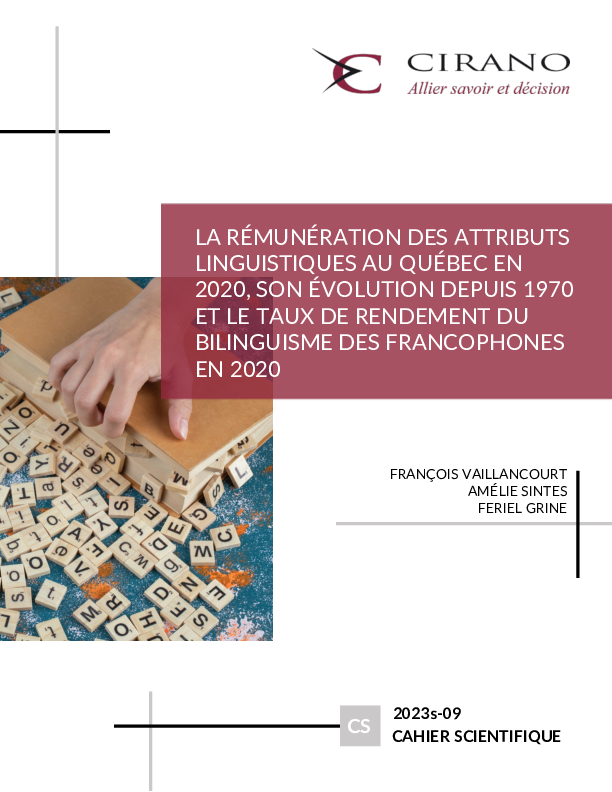La rémunération des attributs linguistiques au Québec en 2020, son évolution depuis 1970 et le taux de rendement du bilinguisme des francophones en 2020
This paper presents the labour market remuneration of the linguistic attributes of men and women in Quebec for 2020 and its evolution since 1970. It uses results produced with microdata made available to researchers by Statistics Canada and drawn from nine Canadian Censuses. The analytical framework adopted is that of the theory of human capital. The differences in average labour income are presented and analyzed by calculating the net effects of linguistic attributes on labour income. These correspond to the remuneration of linguistic attributes per se and are obtained by multivariate analysis (OLS). In the last part of the paper, we compute the internal rate of return (IRR) of learning English by francophones.
The main results for 2205 are as follows:
- Individuals with the highest average labour income (Figure 1) are bilingual (allophones (Allo B), English speakers (Anglo B) or French speakers (Franco B); bilingualism means knowing English and French. Then come unilingual Anglophones (Anglo U) and Francophones (Fran U), then non-bilingual allophones.
- In 2020, the only groups whose linguistic attributes were better paid (net effect, base specification)) than those of unilingual Francophones were bilingual Francophones and bilingual anglophone women.
Let us now examine the evolution over time of the net effects of language skills for three groups –Bilingual francophones (FB), unilingual anglophones (AU) and bilingual anglophones (AB). The main finding is the clear break between 1970 and 1980-2020 in the premium earned by Anglophone, unilingual or bilingual, men. Such a premium was not present for Anglophone women in 1970.
The general conclusion that can be drawn from this is that our results on the net effects of linguistic attributes for 2020 are similar to those observed since the beginning of the 21st century. Bilingualism is better paid than unilingualism among Francophones and Allophones, while Anglophones are doing as well as unilingual Francophones. Calculations of the IRR are highly sensitive to assumptions about learning costs




